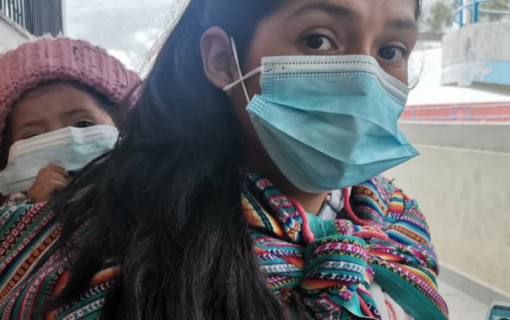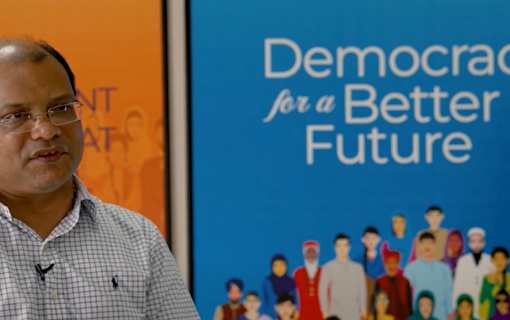1996 Pre-Election Technical Assessment, Yemen
Executive Summary
The Republic of Yemen plans to hold multiparty elections on April 27, 1997, when Yemenis -male and female-- will elect 301 representatives to their country's Parliament. These will be the first elections since the civil war of summer 1994, and the second elections since the unification of the Yemen Arab Republic (North Yemen) and the People's Democratic Republic of Yemen (South Yemen) in 1990.
At the invitation of the Yemeni Supreme Elections Commission (SEC), and with funding from the US Agency for International Development (USAID), the International Foundation for Election Systems (IFES) Middle East Program Officer Amy Hawthorne and IFES consultant Dr. Ronald Wolfe, a Yemen specialist, traveled to Yemen from October 4 through October 14, 1996 to conduct an assessment of election preparations and of the pre-election political climate.
During the mission, the IFES team met with election and government officials, political party leaders, members of Parliament, diplomats and others to assess the progress of election activities and preparations, and to determine what assistance IFES could offer to enhance the electoral process. Although the pressure of time made it impossible to travel outside of Sana'a, the team was able to meet with a wide range of senior government officials, including four meetings with members of the SEC, senior officials of nearly all the leading parties in Yemen, national civic leaders, and visiting international election experts. (A listing of those with whom the team met is attached as Appendix A.)
This report presents the findings of the assessment mission. It focuses on the establishment of an adequate legal and technical environment for free elections in 1997. While in Yemen, the team heard many well-founded criticisms of the electoral process. It is the IFES team's overall assessment, however, that while there are significant procedural and political problems in election preparations so far, the potential for a free and fair election remains, and that the establishment of democratic processes in Yemen, though fragile, deserves external support. The team met many citizens committed to continuing Yemen's "democratic experiment," with its domestic and regional implications, flaws and all. As one Yemeni told us:
We know there are problems, and that these elections will not be perfect. But the important thing is to go forward with the process, to learn from our mistakes. Democracy in its various forms is still new to us. But we cannot give up. We hope that, eventually, a democratic system here will be like water: natural, and essential to our life in Yemen.
The report discusses political background relevant to the 1997 elections, including the 1993 multiparty parliamentary elections (Yemen's first), the 1994 civil war, and current economic conditions. It then describes the new Election Law and elections preparations thus far, focusing on the role and activities of the SEC. The report also covers various "problem areas" in the 1993 elections that the Election Law or the SEC's policies do not address. It concludes with recommendations for technical improvements to the electoral process, and for potential areas for technical support by IFES.
The assessment team would like to express its appreciation for the generous hospitality extended to it throughout its stay in Yemen. Despite the fact that many meetings had to be arranged on very short notice, the team was welcomed everywhere with openness and a wealth of information on upcoming election preparations and political developments. The team would like to thank members of the SEC, members of Parliament, Yemeni government officials, and representatives of all the political parties and non-governmental organizations with whom it met, as well as members of non-Yemeni organizations, such as the United Nations Development Program, the European Union, and the National Democratic Institute for International Affairs, who provided so many insights into current election developments. Lastly, the IFES team would like to thank United States Ambassador to Yemen David Newton (whom it had the opportunity to meet during his visit to Washington in early October), and the staff of the American Embassy, particularly Deputy Chief of Mission Margaret Scobey, Political Officer Richard Jarvis, and USAID staff member Abd aI-Ali al-Shami, for their support in making the mission a success.
Read the Full Report.









